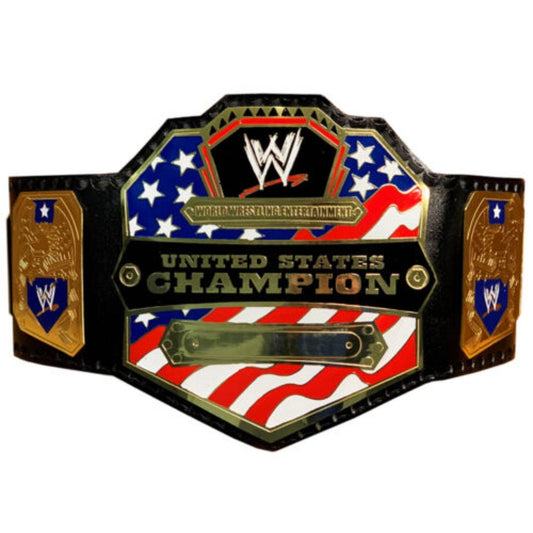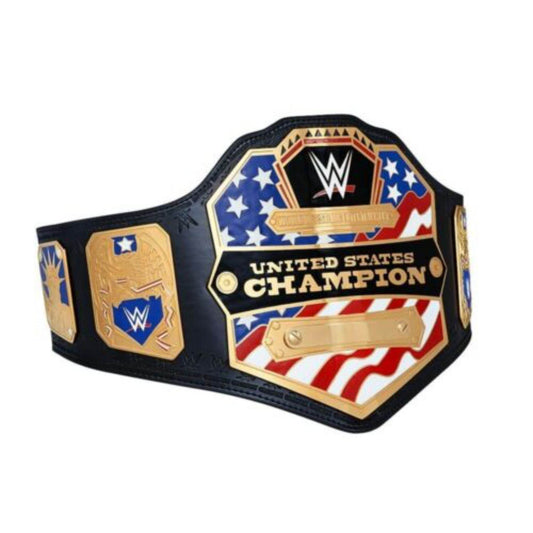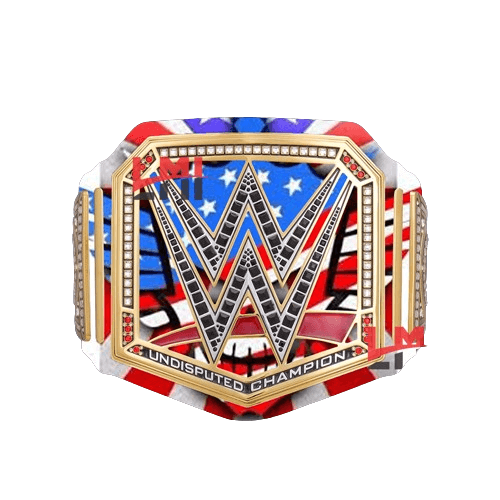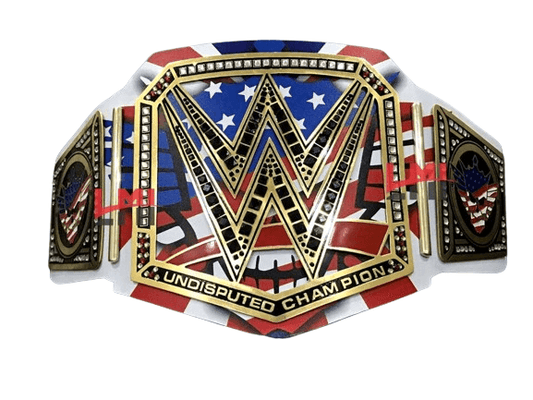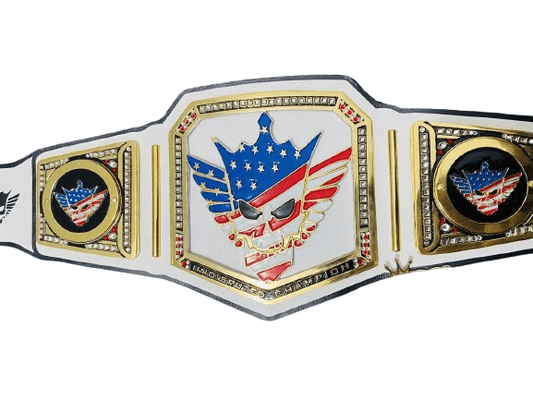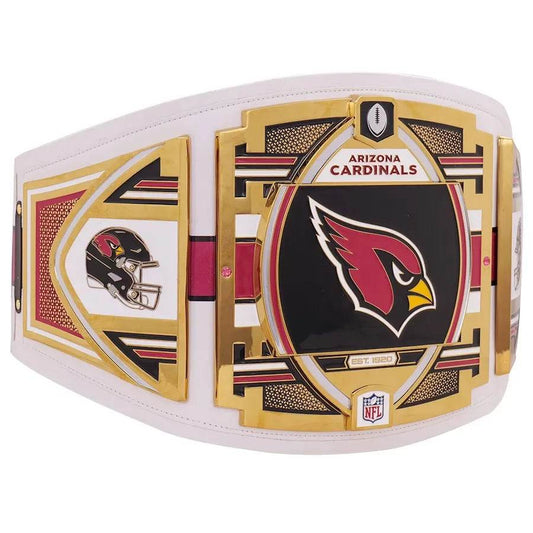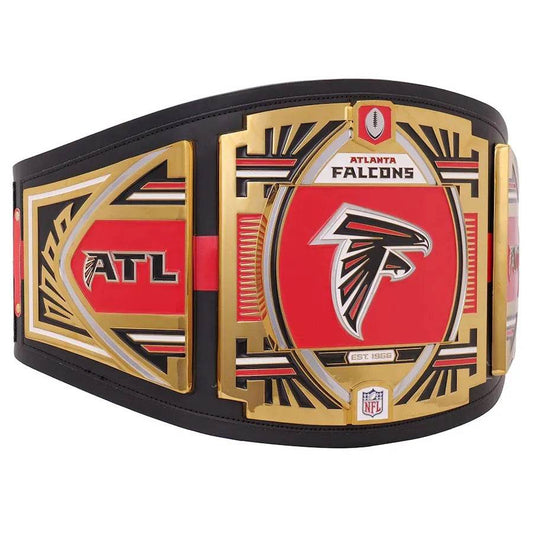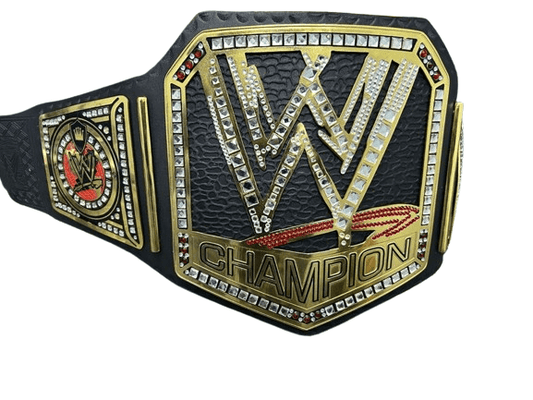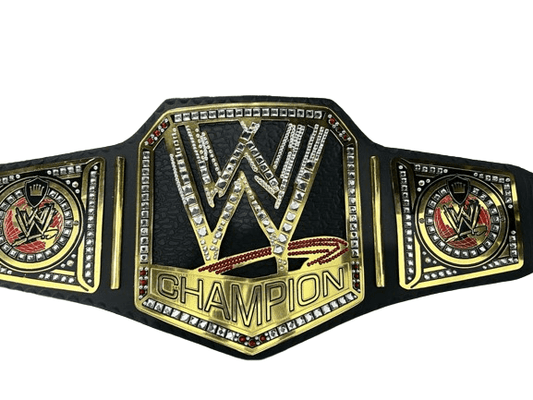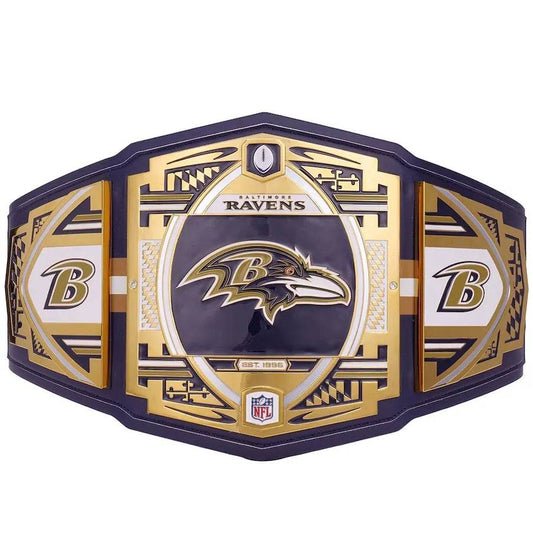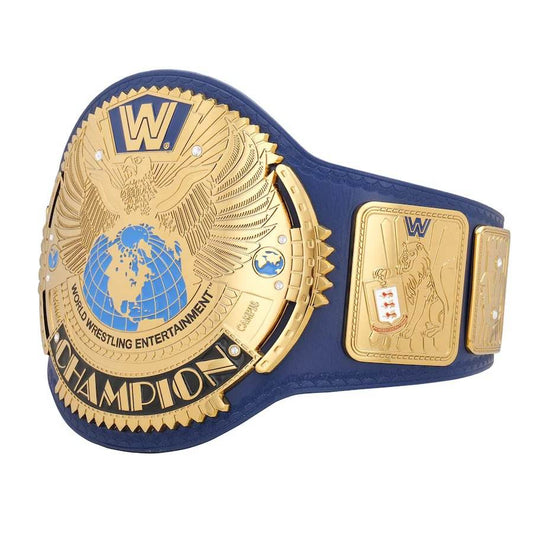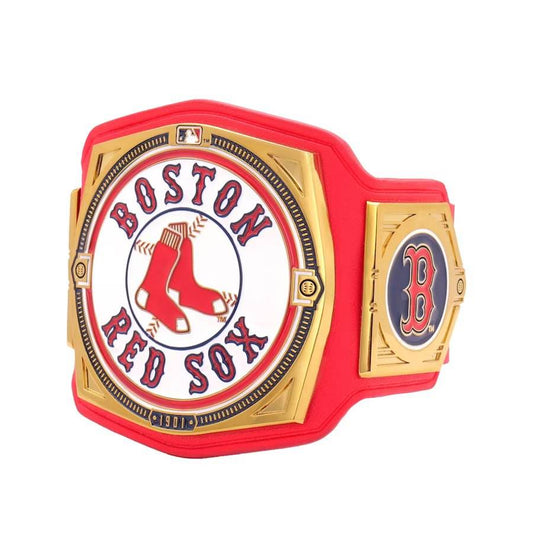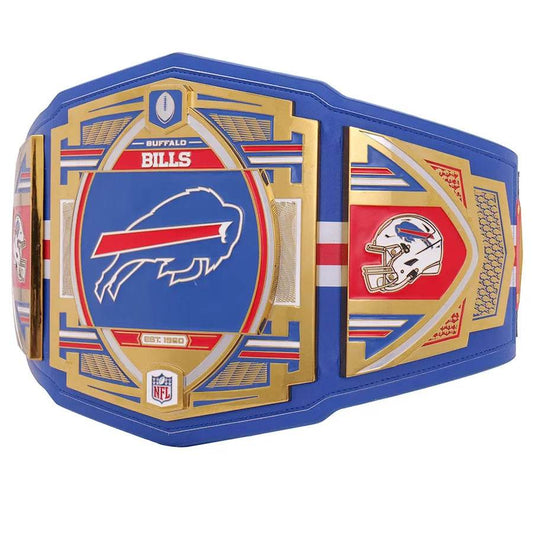-
2014 WWE Intercontinental Championship Replica Title Belt
4.25 / 5.0
(4) 4 total reviews
Regular price $149.00 USDRegular priceUnit price / per$250.00 USDSale price $149.00 USDSale -
2014 WWE United States Championship Replica Title Belt
4.5 / 5.0
(2) 2 total reviews
Regular price $149.00 USDRegular priceUnit price / per$250.00 USDSale price $149.00 USDSale -
American Nightmare Cody Rhodes New WWE Championship Title Belt
Regular price $199.00 USDRegular priceUnit price / per$300.00 USDSale price $199.00 USDSale -
American Nightmare Cody Rhodes WWE Championship Belt
4.5 / 5.0
(2) 2 total reviews
Regular price $199.00 USDRegular priceUnit price / per$250.00 USDSale price $199.00 USDSale -
Arizona Cardinals WWE Legacy Title Belt
4.5 / 5.0
(2) 2 total reviews
Regular price $179.00 USDRegular priceUnit price / per$250.00 USDSale price $179.00 USDSale -
Atlanta Falcons WWE Legacy Title Belt
4.5 / 5.0
(2) 2 total reviews
Regular price $179.00 USDRegular priceUnit price / per$250.00 USDSale price $179.00 USDSale -
Auburn Tigers WWE Championship Replica Title Belt
4.5 / 5.0
(2) 2 total reviews
Regular price $179.00 USDRegular priceUnit price / per$250.00 USDSale price $179.00 USDSale -
Authentic Wear WWE Championship Replica Title Belt
4.5 / 5.0
(2) 2 total reviews
Regular price $199.00 USDRegular priceUnit price / per$200.00 USDSale price $199.00 USDSale -
Authentic Wear WWE Wrestling Heavyweight Championship Belt
4.5 / 5.0
(2) 2 total reviews
Regular price $199.00 USDRegular priceUnit price / per$200.00 USDSale price $199.00 USDSale -
Baltimore Ravens WWE Legacy Title Belt
4.5 / 5.0
(2) 2 total reviews
Regular price $179.00 USDRegular priceUnit price / per$250.00 USDSale price $179.00 USDSale -
Black WWE Intercontinental Championship Replica Title Belt
4.5 / 5.0
(2) 2 total reviews
Regular price $149.00 USDRegular priceUnit price / per$250.00 USDSale price $149.00 USDSale -
Blue WWE Big Eagle Championship Replica Title Belt
4.5 / 5.0
(2) 2 total reviews
Regular price $179.00 USDRegular priceUnit price / per$250.00 USDSale price $179.00 USDSale -
Blue WWE Winged Eagle Championship Mini Replica Title Belt
4.5 / 5.0
(2) 2 total reviews
Regular price $179.00 USDRegular priceUnit price / per$160.00 USDSale price $179.00 USD -
Blue WWE Winged Eagle Championship Replica Title Belt
4.5 / 5.0
(2) 2 total reviews
Regular price $179.00 USDRegular priceUnit price / per$250.00 USDSale price $179.00 USDSale -
Boston Red Sox WWE Mini Title Belt
4.5 / 5.0
(2) 2 total reviews
Regular price $179.00 USDRegular priceUnit price / per$160.00 USDSale price $179.00 USD -
Buffalo Bills WWE Legacy Title Belt
4.5 / 5.0
(2) 2 total reviews
Regular price $179.00 USDRegular priceUnit price / per$250.00 USDSale price $179.00 USDSale
Collection: WWE Belts
WWE Belt - WWE Championship Belt - WWE Title Belt - WWE Replica Belt - WWE Wrestling Belts

Welcome to the ultimate destination for WWE belt enthusiasts and collectors. This comprehensive collection showcases the finest selection of WWE belts, featuring authentic replicas, exclusive merchandise, and iconic championship designs from World Wrestling Entertainment's prestigious history. Whether you're searching for the classic WWE championship belt or exploring the complete range of WWE championship belts, this category offers everything needed to celebrate wrestling excellence and championship glory.
Current WWE Championship Belts:
Main Men's Titles
Undisputed WWE Universal Championship
World Heavyweight Championship (2023–present)
WWE Intercontinental Championship
WWE United States Championship
Tag Team Titles
Undisputed WWE Tag Team Championship (Unified Raw & SmackDown)
NXT Tag Team Championship
Women’s Titles
WWE Women’s Championship (formerly Raw)
Women’s World Championship (formerly SmackDown)
WWE Women’s Tag Team Championship
NXT Women’s Championship
NXT Titles
NXT Championship
NXT North American Championship
NXT Heritage Cup
NXT Women’s Championship
NXT Tag Team Championship
Retired & Defunct WWE Championships
Men’s Singles Titles
WWE European Championship
WWE Hardcore Championship
WWE Light Heavyweight Championship
WWE Cruiserweight Championship (205 Live)
WWE Television Championship (early WWF era)
Tag Team Titles
World Tag Team Championship (Original)
WWE Tag Team Championship (2002–2016)
WCW Tag Team Championship (merged in 2001)
Women’s Titles
WWE Divas Championship
WWE Women's Championship (Original 1956–2010 version)
NXT UK Women’s Championship
Other Specialty Titles
WWE 24/7 Championship
WWE Million Dollar Championship (Legacy/Prop Title)
WWE Undisputed Championship (2002–2005 original)
WWE Universal Championship (Merged into Undisputed Title in 2022)
WWE ECW Championship (2006–2010)
WWE North American Championship (NXT UK variant)
Specialty, Custom & Commemorative Belts
Stone Cold Smoking Skull Belt
Brahma Bull Championship (Unreleased)
Fiend Custom Belt (Bray Wyatt)
John Cena Spinner Belt
Edge Rated-R Spinner Belt
Daniel Bryan Eco-Friendly Hemp Belt
WWE Legacy Title Belts (NBA, NFL, MLB Teams)
WWE x Sports Collab Belts (Boston Red Sox, LA Lakers, etc.)
Ula Fala (Roman Reigns’ ceremonial necklace belt)
WWE Championship Belt Collection Overview
World Wrestling Entertainment has created some of the most recognizable championship designs in sports entertainment history. The WWE belt represents more than just a prize - it symbolizes dedication, athleticism, and the pursuit of excellence that defines professional wrestling. This collection features every major WWE championship belt, from premier world titles to specialized division championships.
Wrestling fans can explore the complete range of WWE belts, each crafted with meticulous attention to detail and authentic design elements. The belt WWE championship category encompasses decades of wrestling history, while modern WWE championship belts continue evolving with contemporary aesthetics and innovative features.
Premier WWE Championship Titles
WWE Championship
The WWE championship belt stands as the company's most prestigious prize, representing the absolute pinnacle of wrestling achievement within World Wrestling Entertainment. This iconic championship has crowned legendary wrestlers throughout WWE's storied history, making it the most coveted prize in the sport of professional wrestling.
Collectors seeking authenticity can explore the WWE championship belt replica, which captures every intricate detail of the original championship. The WWE championship title belt maintains the prestigious design elements that have made this championship instantly recognizable worldwide. Each WWE championship belt wwe shop offering ensures museum-quality craftsmanship and authentic presentation.
WWE World Championship
The WWE world championship belt represents the evolution of WWE's premier championship, featuring distinctive design elements that honor wrestling tradition while embracing modern innovation. Wrestling enthusiasts can discover the WWE world championship replica belt, providing collectors with accurate reproductions of this prestigious title.
The WWE world championship belt combines traditional championship aesthetics with contemporary design elements, creating a title that celebrates wrestling's rich heritage while looking toward the future of sports entertainment.
WWE World Heavyweight Championship
The WWE world heavyweight championship belt honors the rich legacy of heavyweight wrestling excellence within World Wrestling Entertainment. This world heavyweight championship WWE belt features distinctive design elements that separate it from other championships while maintaining WWE's commitment to prestigious presentation.
Collectors can explore the WWE world heavyweight championship title belt and WWE world heavyweight belt options, each representing different eras and design philosophies within WWE's championship history. The heavyweight champion belt WWE category provides comprehensive coverage of this prestigious championship lineage.
Iconic WWE Belt Designs
WWE Winged Eagle Belt
The WWE winged eagle belt remains one of the most beloved championship designs in wrestling history. This winged eagle belt WWE represents the golden era of professional wrestling, featuring intricate metalwork and distinctive design elements that have made it a collector favorite.
Wrestling fans can discover the winged eagle WWE belt through various replica options, each maintaining the authentic details that made this championship design legendary. The winged eagle belt WWE category encompasses different presentation styles and quality levels for collectors.
WWE Spinner Belt
The WWE spinner belt revolutionized championship design with its innovative rotating center plate, creating a unique interactive element that captivated wrestling fans worldwide. This spinning belt WWE featured distinctive hip-hop inspired aesthetics that reflected contemporary culture and WWE's evolution.
Collectors can explore the WWE spinner belt replica, which maintains the original's rotating functionality while providing museum-quality craftsmanship. The WWE belt spinner and WWE belt spinning categories offer various options for fans seeking this innovative championship design.
The WWE belt spin feature created memorable moments in wrestling history, while the WWE belt that spins became synonymous with a specific era of WWE programming. The WWE championship spinner belt represents this unique period in championship design evolution.
WWE Big Eagle Belt
The WWE big eagle belt showcases another iconic design from WWE's championship history, featuring bold eagle imagery and distinctive presentation elements. This design bridge the gap between classic and contemporary championship aesthetics, creating a unique addition to WWE's design legacy.
WWE Universal Championship
The WWE universal belt represents WWE's newest premier championship, created specifically for the Monday Night Raw brand. This WWE universal championship belt features distinctive red accents and modern design elements that separate it from traditional WWE championships.
Wrestling fans can explore the WWE universal champion belt and universal wwe championship belt options, each representing the championship's evolution and significance within WWE's current programming structure. The WWE belt universal and WWE championship belt universal categories provide comprehensive coverage of this modern championship.
WWE Tag Team Championships
WWE Tag Team Championship Belts
The WWE tag team championship belt honors the rich tradition of tag team wrestling within World Wrestling Entertainment. Wrestling fans can explore WWE tag team championship belts designed specifically for championship teams, with each belt representing the partnership and teamwork required for tag team success.
The WWE tag team belts category encompasses various design eras and presentation styles, while WWE belts tag team championships provide comprehensive coverage of tag team wrestling history. Each WWE tag team belt maintains consistent design elements while celebrating unique championship achievements.
The tag team wwe belts collection includes various options for collectors seeking different eras and design philosophies. WWE raw tag team belts specifically represent the Monday Night Raw brand's tag team division, featuring brand-specific design elements.
WWE Undisputed Championship
The WWE undisputed championship belt represents the unification of WWE's premier championships, creating a single title that encompasses all of WWE's championship prestige. This undisputed wwe championship belt features distinctive design elements that celebrate championship unification.
Wrestling fans can explore this prestigious championship through various replica options, each maintaining the authentic details that make this championship unique within WWE's current structure.
WWE Women's Championships
WWE Women's Championship
The WWE women's championship belt represents the evolution of women's wrestling within World Wrestling Entertainment. This championship features distinctive design elements that celebrate female wrestling achievement while maintaining consistency with WWE's overall championship aesthetic.
The WWE women's champion belt showcases the growing prominence of women's wrestling, while the women's division continues expanding in significance and recognition within WWE programming.
WWE Divas Championship
The WWE divas belt and WWE divas championship belt represent a specific era in WWE's women's wrestling history. While this championship has been retired, it remains significant for collectors and fans interested in WWE's complete championship lineage.
The WWE divas champion belt featured unique design elements that differentiated it from other championships, making it a distinctive addition to comprehensive WWE championship collections.
WWE Replica and Collectible Belts
WWE Replica Belt Collection
Wrestling collectors can explore extensive WWE replica belts options that maintain museum-quality authenticity and craftsmanship. The WWE replica belt collection ensures that every detail matches the original championships used in television programming.
The WWE shop replica belts and WWE replica belts wwe shop categories provide official merchandise with guaranteed authenticity. Each replica belt wwe and belt replica wwe option undergoes rigorous quality control to ensure collector satisfaction.
WWE Shop Belt Collection
The WWE shop belts category provides official merchandise directly from World Wrestling Entertainment, ensuring authenticity and quality. Wrestling fans can explore WWE shop belts with confidence, knowing they're purchasing officially licensed products that meet WWE's strict quality standards.
WWE Championship Collectibles and Merchandise
WWE Action Figure Belts
The WWE action figure belts category provides scaled championship accessories for WWE action figure collections. These WWE figure belts maintain authentic design elements while ensuring compatibility with various action figure lines and play scenarios.
WWE Toy Belts
Wrestling fans can explore the WWE toy belts collection, which provides safe, age-appropriate championship options for younger wrestling enthusiasts. The WWE belts for toys category ensures durability and safety while maintaining authentic WWE championship aesthetics.
These products allow children to recreate their favorite wrestling moments while developing appreciation for WWE's championship traditions and wrestling excellence.
WWE Mini Belts
The WWE mini belts collection offers compact championship replicas perfect for display or collecting. These miniature versions maintain authentic design details while providing space-efficient options for comprehensive championship collections.
WWE Championship Accessories
WWE Belt Accessories
Wrestling fans can explore various WWE championship accessories, including the WWE belt buckle for everyday wear and the unique WWE belt slap bracelet for casual fashion integration. These accessories allow fans to incorporate WWE championship aesthetics into daily life.
WWE Commemorative Belts
The WWE commemorative belt category celebrates special events, anniversaries, and milestone moments in WWE history. These limited-edition championships provide collectors with unique pieces that commemorate significant wrestling moments and achievements.
Historical WWE Championship Designs
WWE Attitude Era Belt
The WWE attitude era belt represents one of wrestling's most exciting periods, featuring championship designs that reflected the edgy, rebellious spirit of late 1990s sports entertainment. These championships became iconic symbols of WWE's creative revolution.
All WWE Championship Belts
The all wwe belts category provides comprehensive coverage of WWE's complete championship history, from classic designs to contemporary innovations. Wrestling fans can explore all modern wwe championship belts cover options and all wwe championship belts banner presentations.
The all wwe 2025 championship belts banner showcases WWE's current championship lineup, while historical collections provide complete championship lineage coverage for serious collectors.
WWE Championship Shopping Guide
WWE Belts for Sale
Wrestling fans exploring WWE belts for sale can discover various authorized retailers and quality levels. The WWE championship belts for sale category includes different price points and presentation options, ensuring accessibility for various budgets and collecting goals.
The WWE title belts for sale section provides specific information about individual championship availability, while comprehensive collections offer complete championship lineages for serious collectors.
Authentic WWE Belt Options
Collectors seeking authentic wwe belt options can explore various official merchandise sources that guarantee authenticity and quality. The real wwe belts category provides information about official WWE merchandise and authorized replica producers.
The wwe authentic belt collection ensures that collectors receive officially licensed products that meet WWE's strict quality and authenticity standards.
Specialty WWE Championship Categories
WWE Speed Championship
The WWE speed championship belt represents WWE's innovative approach to fast-paced wrestling competition. This championship features distinctive design elements that reflect the unique format and competitive structure of WWE Speed programming.
WWE Intercontinental Championship
The WWE intercontinental championship belt maintains its position as one of WWE's most prestigious secondary championships. This title features classic design elements that honor decades of wrestling tradition and championship excellence.
WWE New Belt Designs
WWE continuously evolves its championship presentations, with new WWE belt designs reflecting contemporary aesthetics while honoring traditional championship elements. Each new wwe belt introduction generates excitement among wrestling fans and collectors.
The new wwe belts and new wwe title belt categories showcase WWE's latest championship innovations, while the new wwe championship belt represents the company's commitment to championship evolution.
WWE Championship Holders and History
Current WWE Belt Holders
Wrestling fans can explore information about current WWE belt holders across all championship divisions. This information helps fans stay current with WWE programming while understanding championship significance and prestige.
WWE Championship Legacy
The WWE championship replica title belt collection encompasses decades of wrestling history, from classic designs to contemporary innovations. Each championship represents specific eras and wrestling philosophy evolution within World Wrestling Entertainment.
Special Edition WWE Belts
WWE Big Gold World Heavyweight Championship
The WWE big gold world heavyweight championship replica title belt availability provides collectors with access to this iconic championship design. This championship features distinctive gold plating and traditional heavyweight wrestling aesthetics.
WWE WHC Belt
The WWE whc belt represents the World Heavyweight Championship's distinctive design elements and championship prestige. This championship maintained separate identity while operating alongside WWE's other premier championships.
WWE Wrestling Belt Collection
Complete WWE Wrestling Belt Coverage
The WWE wrestling belt and WWE wrestling belts categories provide comprehensive coverage of WWE's complete championship structure. From premier world championships to specialized division titles, wrestling wwe belts encompass every aspect of WWE's championship presentation.
WWE Championship Belt Innovation
WWE continues innovating championship design and presentation, with each WWE belt championship representing the company's commitment to wrestling excellence and championship prestige. The heavyweight champion wwe belt category specifically honors WWE's premier division heritage.
Unique WWE Championship Features
Interactive Championship Elements
Beyond traditional championship design, WWE has experimented with interactive elements like the spinning mechanism found in the WWE spinner championship belt. These innovations demonstrate WWE's willingness to embrace new technologies and presentation concepts.
Special Championship Variants
Collectors can explore special championship variants, including the unique igloo wwe belt design and other limited-edition presentations that showcase WWE's creative approach to championship design and merchandising.
Frequently Asked Questions about WWE Championship Belts:
1. How much does a real WWE championship belt cost?
An authentic WWE championship belt can cost $800 to $10,000 if it's ringside-grade or TV-used. Replicas typically range from $250 to $600, with deluxe versions going higher.
2. Are WWE belts made of real gold?
No, WWE belts are made from gold-plated brass, zinc alloy, or stainless steel, not solid gold. Faux gems and enamel details are also used.
3. What’s the difference between a replica and an authentic WWE belt?
Authentic belts are handcrafted, heavier (5–8 lbs), and made from high-end materials like real leather. Replicas are lighter, mass-produced, and made for fans.
4. Why did WWE retire the "Big Gold Belt"?
The belt was retired in 2013 when it was unified with the WWE Title to form the WWE World Heavyweight Championship.
5. Can fans buy the same belts wrestlers carry on TV?
Fans can't buy the exact belts used on TV, but identical high-quality replicas are available from WWE Shop and licensed sellers.
6. What is the most prestigious WWE championship?
The WWE Championship is historically the most prestigious title, with iconic versions like the Winged Eagle and Smoking Skull.
7. How heavy are WWE belts?
Standard replica belts weigh around 5 to 7 lbs, while TV-used belts may weigh slightly more due to thicker metal plates and real leather straps.
8. Why do modern WWE belts have removable side plates?
Introduced in 2015, removable side plates allow champions to customize their belts with logos or symbols.
9. Who designed the most iconic WWE belts?
Dave Millican designed many classic belts (Attitude Era), while Wildcat Belts crafted most of today’s modern titles.
10. Has a WWE title ever been stolen?
Yes. For example, Hulk Hogan’s WWF belt was stolen in 1991, but it was eventually recovered.
11. Do champions keep their belts after losing the title?
Yes. WWE usually gives superstars personalized replica versions to commemorate their reigns.
12. Why did John Cena’s "spinner belt" rotate?
The spinning design was introduced in 2005 to match Cena’s hip-hop persona. It symbolized flair and movement.
13. What’s the rarest WWE belt?
Rare belts include the Winged Eagle (1988–1998) and Undisputed Championship (2002–2005) due to their limited availability and iconic design.
14. How are WWE title belts made?
They are made using hand-tooled leather straps, laser-cut metal plates, faux jewels, and gold plating or epoxy paint for details.
15. Who held a WWE title the longest?
Bruno Sammartino held the WWE Title for 4,040 days. Among women, Asuka held the NXT Women’s Title for 522 days.
16. Why did WWE introduce the Universal Championship?
It was created in 2016 after the brand split to serve as the top title on Raw, replacing the retired World Heavyweight Championship.
17. Can you customize a WWE replica belt?
Yes. WWE Shop offers side plate customization for many titles, usually costing an additional $50–$100.
18. Has anyone held both WWE and UFC belts?
Yes. Brock Lesnar is the only individual to win both the WWE Championship and the UFC Heavyweight Title.
19. Why are some titles called "world" championships?
“World” denotes the highest-level title in a promotion, a term rooted in the old territory days when each region had its own top title.
20. Did Stephanie McMahon ever hold a championship belt?
Yes—in storyline (kayfabe), she awarded herself the WWE Women’s Championship in 2000, but never won it through a match.
21. How many WWE belts are there?
As of 2025, WWE has over 15 active championship belts, including main roster, NXT, tag team, and specialty titles.
22. Who holds the WWE belts?
Champions change frequently. Current holders are updated on WWE.com and trusted stores like WWFBelt.com.
23. Who makes WWE belts?
The best quality of belts is produced by WWFBelt.com.
24. How much is a real WWE belt worth?
Real TV-used belts can be valued at $10,000 or more, while collector-grade replicas are typically $400 to $2,000.
25. How much does a WWE belt cost?
Replica belts cost around $250–$600, with premium versions going up to $1,500 or more for deluxe or commemorative editions.
26. How to draw a WWE belt?
Start with a wide strap, add a large center plate, side plates, and logos or designs. Use reference images for accuracy and symmetry.
27. What happened to the red WWE belt?
The red Universal Championship was introduced in 2016 for Raw. It was later merged into the Undisputed WWE Universal Championship in 2022.



